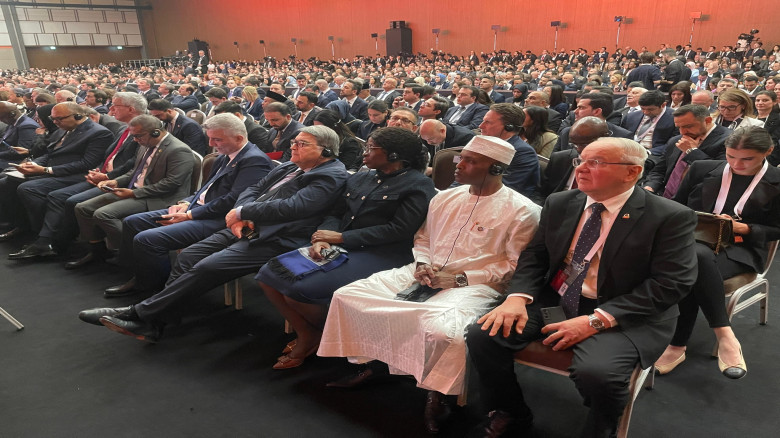Saudi-Sudan Maritime Agreement: A Brewing Tension with Egypt
By: A private correspondence - The Charilogone Editorial TeamThe Anti-War website reported that Abdel Fattah al-Burhan's visit to Saudi Arabia, just two days before the Sudanese civil war entered its third year, highlights the growing relationship between al-Burhan and Saudi Arabia.
It also signals a clear Saudi-Sudanese rapprochement and aligns perfectly with Riyadh's broader strategic shift toward controlling ports across the Red Sea, which is directly linked to the Kingdom's ambitious economic reform under Vision 2030—particularly its flagship projects such as NEOM, the Red Sea mega-tourism projects along its western coast, and the expansion of Yanbu Terminal, designed to diversify oil export routes away from the Strait of Hormuz.
Al-Burhan's recent visit to the Kingdom and its timing underscored Saudi Arabia's longstanding commitment to the Red Sea and its importance to Riyadh's vision. In this context, Saudi Arabia appears to have overstepped its role as a neutral arbiter in the Sudanese civil war, instead leaning toward supporting the Sudanese Armed Forces to secure geopolitical gains associated with control of the Red Sea.
Saudi Arabia's engagement with Sudan began immediately after the fall of Omar al-Bashir's regime in 2021, when Riyadh began pushing for maritime border demarcation talks with Sudan, exploiting the country's marginalization and instability. Joint committees were quietly formed to reach an agreement between the two countries.
These negotiations were conducted in complete secrecy under the supervision of Sudanese Army Commander Abdel Fattah al-Burhan. Any Saudi-Sudanese negotiations on the maritime border cannot be separated from the fate of the Hala'ib Triangle, including Shalateen and Abu Ramad. This is because such an agreement would directly impact the starting points of the maritime border, divide the continental shelf and natural resources, and control vital shipping lanes in the Red Sea.
Since the demarcation of the maritime border will determine which country legally and practically controls the coast, and since the Hala'ib, Shalateen, and Abu Ramad areas will fall within the scope of the agreement, this means implicit Saudi recognition of the triangle as Sudanese territory under Egyptian occupation. For this reason, the process was kept secret to avoid escalating tensions with Egypt—especially since Cairo supports the Sudanese army and simultaneously maintains strong relations with Riyadh.
With the outbreak of civil war in Sudan, the Maritime Boundary Demarcation Commission's work was suspended. However, after the Rapid Support Forces formed a parallel government, Saudi Arabia pushed to resume the commission's work to formalize the maritime boundary agreement and preempt any new developments on the ground in Sudan.
It's worth noting that the committee's resumption of work coincided with a high-level Saudi delegation's visit to Port Sudan a few days ago, which focused primarily on cooperation in the Red Sea and preventing Khartoum from providing military bases to Russia or Turkey along its 853-kilometer Red Sea coastline.
Saudi Arabia appears to be seeking to sign a maritime border agreement with Sudan similar to the Tiran and Sanafir Islands agreement signed with Egypt in 2016, at a time when Egypt was facing a severe economic crisis.
The ongoing negotiations between Saudi Arabia and Sudan regarding the maritime border, and the final signing of an agreement, will inevitably ignite tensions with Egypt, as the Halayeb, Shalateen, and Abu Ramad areas lie at the heart of Sudan's dispute with Cairo. Furthermore, the revelation of such an agreement could impact the Sudanese military's alliances, given Egypt's strategic interests in the region.








































































Leave A Comment